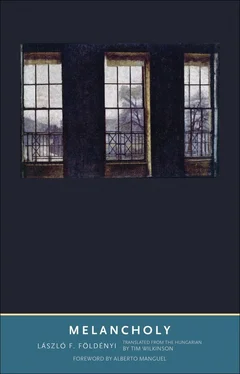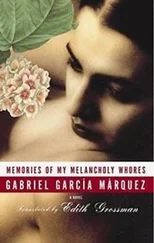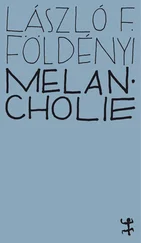3. Likewise, melancholic Byron was later to write deprecatingly of Petrarch: “I detest the Petrarch [sonnets] so much, that I would not be the man even to have obtained his Laura, which the metaphysical, whining dotard never could” (journal entry, 17–18 December 1813).
4. In the Renaissance era, merriness was considered one of the most effective treatments against melancholia: Democritus, the Laughing Philosopher, was considered the chief antidote (though Hippocrates was of the view that he too suffered from melancholia), and many called on him as a support. In 1607 there appeared a book in England, penned by Samuel Roland, with the title Democritus, or Doctor Merry Man: His Medicine against Melancholy Humours .
5. In the fifteenth to sixteenth centuries, the number of suicides grew markedly, and so too did the number of writings about them: between 1551 and 1585, some four discourses about suicide are known about, whereas in the seventeenth century, at least fifteen. The military laws drawn up for Fredrick the Great of Prussia give the cause of suicide as “melancholia or despondency.”
6. This is obvious not just in books like Machiavelli’s The Prince , but also in writings like Baldassare Castiglione’s The Book of the Courtier , which sought to regulate matters of fine manners and dress.
7. In certain Renaissance-era portraits, the subject points at a representation of a maze carved into a tree or a book cover (for example, Dosso Dossi, Portrait of an Unknown Subject , 1520; Girolamo Mazzola Bedoli, Portrait of a Scholar , first third of sixteenth century) or, as in the unsettling Portrait of a Man by Bartolomeo Veneto in the Fitzwilliam Museum, Cambridge, UK, the labyrinth that he points at is woven into the front of his garment. The center of the unsolvable riddle, the destructive monster, the seat of the Minotaur, is the heart itself.
8. It is no accident that this age was also an age of utopias, and without digressing into the deep-lying melancholia of utopias, let us simply refer to the fact that in ancient comedies, Kronos (Saturn) was called the “king of Utopia”: the supreme lord of melancholia set up his throne in unknown places that never existed.
9. A similar fear would be felt by Kepler, who shuddered at the mere thought that he was drifting in this immeasurable universe, boundless and therefore centerless, where position could not be determined, since in infinity “whatever point might be taken at random, it is identically — to wit infinitely — distant from the infinitely remote outermost points” (quoted in Dietrich Mahnke, Unendliche Sphäre und Allmittelpunkt , 131–32).
10. This ecstasy, unlike the aforesaid ecstasy of Jesus, denotes exclusively stepping outside, making one’s way outside oneself; despots do not step into anywhere, but step out into a void.
11. Constantine the African had talked about melancholia leonina and canina (that is, lion- and dog-hearted melancholia), and Petrus Hispanus later referred to the difference between mania canina and mania lupina (that is, dog- and wolf-hearted melancholia). The hare was considered to be a mournful animal in the Elizabethan era and later; Dr. Johnson says of the hare, “She is upon her form always solitary, and, according to the physic of the times, the flesh of it was supposed to generate melancholy.” In Shakespeare’s King Henry IV , Prince Henry says to Falstaff: “What sayest thou to a hare, or the melancholy of Moor-ditch?” (I.i.2). Moor-ditch was originally part of the great moat that formerly surrounded the City of London, extending from Moorgate to Bishopsgate. Its dull filthy stream, with marshes on one side and wretched houses on the other, allegedly gave rise to melancholy in the same way that the consumption of rabbit meat did.
12. That explains why the cult of Martha was never as big as that of Mary in the Middle Ages.
13. Their number is reduced in the final draft, but the dog sleeping next to a lion, a symbol of despair and sorrow, of the melancholic condition, is missing from the earlier sketches.
14. In his Purgatory , Dante places Leah and Rachel beside each other, with the former commenting: “She is content with seeing, I with labor” (canto 27, l. 107).
15. “We are merely the stars’ tennis balls, struck and banded / Which way please them,” says Bosola, one of the protagonists in Webster’s play The Duchess of Malfi (1613–14).
16. The epigraph of Agrippa von Nettesheim’s Declamation Attacking the Uncertainty and Vanity of the Sciences and the Arts reads: “Ignorance is bliss” ( Nihil scire felicissima vita ).
17. “According to this view the representing relation which makes it a picture, also belongs to the picture,” writes Wittgenstein ( Tractatus logico-philosophicus , 2.0131).
18. In all likelihood, it was due to a similar necessity that van Eyck “unfolded” the perspective of the left wing of his picture of The Last Judgment into several dimensions — thereby anticipating Leonardo’s experiments in representing spherical space.
19. “The world of the waking is one and shared, but the sleeping turn aside each into his private world” (Heraclitus, frag. 89, quoted in Charles H. Kahn, The Art and Thought of Heraclitus , 31).
20. Reflection, representation, and depiction are not naturalistic but Platonic categories in Renaissance art theory. In his aforementioned treatise, Sidney talks a great deal about imitation, but he never lets it be known what a poet imitates. He does not say that the poet represents nature or humans, let alone assert that he reflects reality, but proclaims both laconically and eloquently that the root of poetry is the “idea or fore-conceit.”
21. According to a Christian interpretation, this artistic-melancholic inner conflict is sin itself; it is in that sense that Kierkegaard too regarded poetry as a sin: “From a Christian standpoint, such an existence. . is sin, it is the sin of poeticizing instead of being, of standing in relation to the Good and the True through imagination instead of being that, or rather existentially striving to be it” ( The Sickness unto Death , bk. 2, 1).
22. The noblest and most sublime calling of art, says the protagonist of Unamuno’s novel Mist , is to prevail on a person to doubt his own existence.
23. Leonardo da Vinci recommended that painters withdraw into complete solitude; the biographies in Vasari’s Lives of the Most Excellent Painters, Sculptors, and Architects include numerous misanthropic, solitary artists.
24. In Raphael’s fresco School of Athens , Michelangelo, representing Heraclitus, sits in the foreground of the picture in a characteristically melancholic pose.
25. “An awful habit has developed among common folk and even among the educated,” the academician Giovanni Battista Armenini wrote in 1587, “to whom it seems natural that a painter of the highest distinction must show signs of some ugly and nefarious vice allied with a capricious and eccentric temperament, springing from his abstruse mind. And the worst is that many ignorant artists believe themselves to be very exceptional by affecting melancholy and eccentricity” (quoted in Wittkower and Wittkower, Born under Saturn , 92).
26. According to Ruskin, starting in the fifteenth century God’s hand vanished from art.
27. 


 (“For unto which of the angels said he at any time, Thou art my Son, this day have I begotten thee?”).
(“For unto which of the angels said he at any time, Thou art my Son, this day have I begotten thee?”).
Читать дальше




 (“For unto which of the angels said he at any time, Thou art my Son, this day have I begotten thee?”).
(“For unto which of the angels said he at any time, Thou art my Son, this day have I begotten thee?”).










